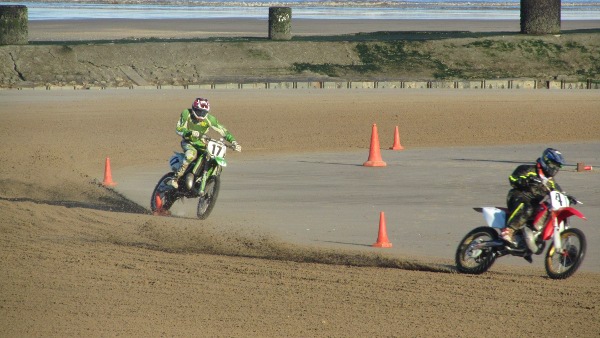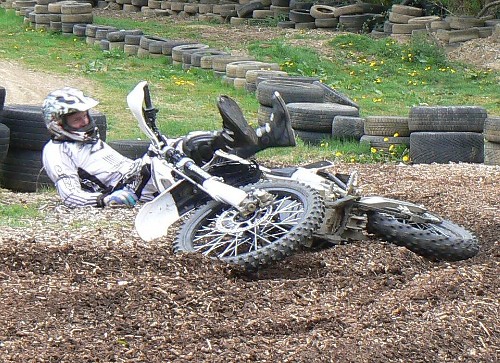Studies find that motorcycling aids brain function
Ryuta Kawashima and the Yamaha Motor Co. study the brain function of motorcyclists
The Yamaha Motor Co, and Japanese scientist Ryuta Kawashima of the Institute of Development, Ageing and cancer at Tohoku Universtiy Japan, brain researcher and inventor of the Ninetendo brain training game 'How old is your brain' (good credentials!) have agreed that riding a motorcycle is good for your brain.
It's a no brainer

Experiment to determine effect of gorilla suit on riding ability
The research group did various experiments designed to test the brain function of motorcyclists with a view to finding out whether motorcycling helped or harmed the brain. They carried out a series of carefully designed experiments, starting with a mixture of riders, one group who currently rode motorcycles regularly and a group who had once been regular riders but had not ridden for at least ten years.
In the first experiment Kawashima attached equipment to the riders' heads which would measure their brain activity while they were riding, and then got them to complete eight complicated courses which reproduced all types of riding conditions which they might meet out on the road, including sharp bends, steep hills and bumpy surfaces to name but a few.
In another experiment twenty-two motorcyclists, with an average age of forty-five, who had not ridden for ten years were divided into two groups. One team rode regularly everyday, commuting to work and going out on their bikes for two months, while the other group were not allowed to ride a motorcycle at all.
_85-90_1.jpg)
He last rode before sleeves were invented
What this showed, once the data was analysed, was that the current riders and the ex-riders used their brains in very different ways. The current riders used the right hemisphere of the pre frontal lobe of the brain when riding, an area of the brain which highlighted concentration, memory and spatial awareness. This area is activated by riding a motorcycle because raised alertness is required to deal with balance, traffic and road conditions when riding, and this in turn leads to improved brain function and higher scores in cognitive function tests. For example in one cognitive test where the men were required to memorise a set of numbers, the motorcycle riders scores rose by more than fifty percent in the two months they were riding, while the non riders marks deteriorated slightly.
Apparently the pre frontal area is not activated nearly as much in car drivers as fewer brain functions are required in driving a car.

Yep, they are definitely concentrating
“Balancing and other sensitive control functions are required for riding a motorcycle. Any motorcycle rider's brain may become more tense in order to process information actively during riding”
Use it or lose it!
Kawashima added:
“Mental care is a very sensitive issue in modern society, I think we made an interesting stir here as data showed that you can improve your mental condition simply by using motorbikes to commute”
Dr Kawashima maintains that the concentration, quick thinking and reactions, stresses and multiple skills used in riding a motorcycle are what keeps the brain functioning at its best, saying:
“In a convenient and easy environment, the human mind and body get used to setting the bar low. Our final conclusion is that riding motorcycles can lead to smart ageing”

High functioning pre frontal lobe
What's not to like?
Perhaps one of the most heartening things to come out of the study as well is that the motorcycle riders, in a questionnaire at the end of the studies, all reported that their stress levels were reduced and their mental state had improved.
Unfortunately these studies were not done on a large enough study group to be accepted as definitive but all motorcyclists know how exhilarating and mood enhancing riding can be – so we will continue to take our extra large brains, higher cognitive functions and activated pre frontal areas out for a ride and take the long way home, as it will make us happier, brainier and healthier.
Wemoto



_85-90_1.jpg)

